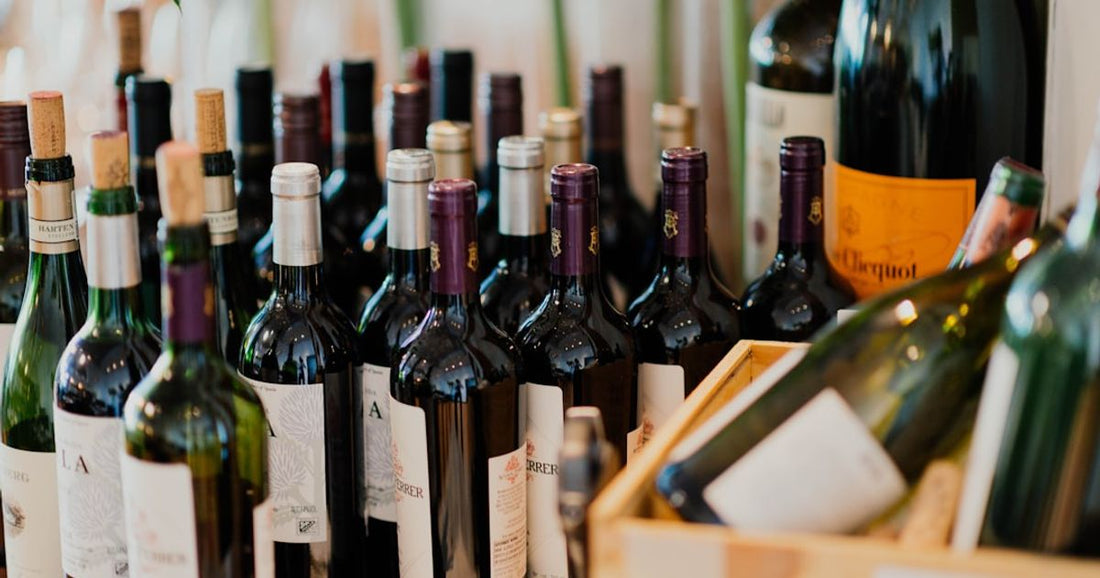
Future Trends in UK-Spain Wine Trading
Share
The UK-Spain wine trade has long been a dynamic and evolving market segment, deeply influenced by changing consumer preferences, regulatory shifts, and broader economic trends. As we look to the future, several key factors are poised to shape the trajectory of this vibrant trade relationship. This article delves into the evolving landscape of UK-Spain wine trade, offering insights into the trends that are set to define the future of this market segment. From sustainability initiatives to the impact of digital transformation, we explore the forces at play in shaping the next chapter of UK-Spain wine trading.
Key Takeaways
- Sustainability and Organic Wine Production: An increasing consumer demand for sustainable and organic wines is driving changes in production and certification standards.
- Digital Transformation in Trade: Technology is revolutionizing how wine is marketed, sold, and distributed, with e-commerce and blockchain offering new opportunities and challenges.
- Impact of Climate Change: Climate change is altering wine production landscapes, necessitating adaptation strategies for vineyards.
- Regulatory Changes and Trade Agreements: Post-Brexit trade agreements and regulatory changes are reshaping the UK-Spain wine trade landscape.
- Consumer Trends and Preferences: Shifting consumer preferences towards unique, local, and lesser-known wine varietals are influencing the market.
Sustainability and Organic Wine Production
The Rise of Eco-conscious Consumers
In recent years, there has been a marked shift in consumer behavior, with a growing number of individuals prioritizing sustainability and environmental responsibility in their purchasing decisions. This trend is particularly evident in the wine industry, where there is an increasing demand for wines produced through organic, biodynamic, and sustainable practices. Spanish winemakers have recognized this shift and are adapting their vineyard management and winemaking processes to meet these new consumer expectations. This includes everything from reducing water usage and eliminating pesticides to adopting renewable energy sources in the production process.
Certification and Labeling Challenges
As the demand for sustainable and organic wines grows, so does the importance of certification and labeling. Consumers are seeking transparency in how wines are produced, leading to a greater emphasis on certified organic and biodynamic labels. However, the process of obtaining these certifications can be complex and costly for winemakers, presenting a significant challenge. Additionally, the multitude of certification bodies and standards across different countries can lead to confusion among consumers. Efforts are underway to simplify and harmonize certification processes, but this remains a work in progress.
Digital Transformation in Wine Trading
The digital transformation of the wine industry is reshaping how wines are marketed, sold, and distributed. From e-commerce platforms to blockchain technology, digital tools are offering new opportunities and challenges for UK-Spain wine trading.
E-commerce and Online Sales
The rise of e-commerce has dramatically changed the landscape of wine trading. Online wine sales have been growing steadily, a trend that accelerated during the COVID-19 pandemic as consumers turned to online shopping. For Spanish winemakers looking to export to the UK, e-commerce platforms offer a direct-to-consumer sales channel that bypasses traditional distribution networks. This can lead to greater margins and a closer relationship with the end consumer. However, it also requires wineries to invest in digital marketing and logistics capabilities to succeed in the competitive online marketplace.
Blockchain and Traceability
Blockchain technology is emerging as a powerful tool for enhancing transparency and traceability in the wine trade. By securely recording every transaction and movement of a wine bottle from vineyard to consumer, blockchain can provide a tamper-proof provenance record. This has the potential to reduce fraud, such as counterfeit wines, and increase consumer trust in the authenticity and quality of the wine they purchase. Spanish wineries and UK importers are beginning to explore the use of blockchain, although widespread adoption is still in the early stages.
Impact of Climate Change on Wine Production
Climate change is having a profound impact on wine production, altering growing conditions and challenging traditional winemaking regions. Spanish wineries are at the forefront of adapting to these changes, exploring new grape varieties and viticulture practices.
Adapting to Shifting Growing Conditions
As temperatures rise and weather patterns become more unpredictable, Spanish wineries are experimenting with new grape varieties that are better suited to warmer, drier conditions. This includes both traditional Spanish varieties that have been overlooked in the past and entirely new varieties from other regions. In addition to varietal selection, wineries are also adopting new viticulture practices, such as adjusting planting densities and canopy management techniques, to mitigate the effects of climate change.
Water Management and Conservation
Water scarcity is becoming an increasingly critical issue for wine production in many parts of Spain. Wineries are implementing a range of water conservation measures, from advanced irrigation technologies that minimize water use to rainwater harvesting and recycling systems. These efforts not only help to ensure the sustainability of wine production in the face of climate change but also contribute to the overall environmental footprint of the wine industry.
Regulatory Changes and Trade Agreements
The UK's departure from the European Union has introduced new complexities and uncertainties into the UK-Spain wine trade. Both regulatory changes and the potential for new trade agreements are areas of focus for exporters and importers.
Navigating Post-Brexit Trade
Post-Brexit, the UK and Spain have had to navigate a new trade landscape, with changes in tariffs, customs procedures, and regulatory standards affecting the wine trade. While initial disruptions were inevitable, there are also opportunities for both countries to negotiate trade agreements that could benefit the wine industry. For Spanish wineries, understanding and adapting to these new rules is crucial for maintaining access to the UK market.
Impact on Importers and Consumers
For UK importers and consumers, the post-Brexit environment has led to concerns about increased costs and reduced availability of Spanish wines. However, efforts are being made to minimize these impacts through efficient logistics and supply chain management. Additionally, the potential for new trade agreements between the UK and Spain offers hope for a more streamlined and cost-effective trade in the future.
Consumer Trends and Preferences
The wine market is constantly evolving, with consumer tastes and preferences playing a significant role in shaping the future of UK-Spain wine trading.
Demand for Authenticity and Storytelling
Modern consumers are increasingly seeking authenticity and a connection to the origin of the products they purchase. In the wine industry, this translates into a demand for wines that tell a story about their place of origin, the people who make them, and the traditions behind them. Spanish wineries have a rich history and diverse wine culture to draw upon, offering a unique value proposition to UK consumers looking for authentic wine experiences.
Exploration of Lesser-known Varietals and Regions
There is a growing curiosity among wine consumers to explore lesser-known varietals and wine regions. This trend presents an opportunity for Spanish wineries to showcase the diversity of their wine offerings beyond the well-known Rioja and Ribera del Duero. From the fresh whites of Rias Baixas to the complex reds of Priorat, Spain has a wealth of wine experiences to offer adventurous UK consumers.
In conclusion, the future of UK-Spain wine trading is shaped by a complex interplay of trends, from sustainability and digital transformation to regulatory changes and shifting consumer preferences. By understanding and adapting to these trends, Spanish wineries and UK importers can navigate the challenges and seize the opportunities that lie ahead. The evolving landscape of UK-Spain wine trade promises to bring exciting developments for both the industry and wine enthusiasts alike.


